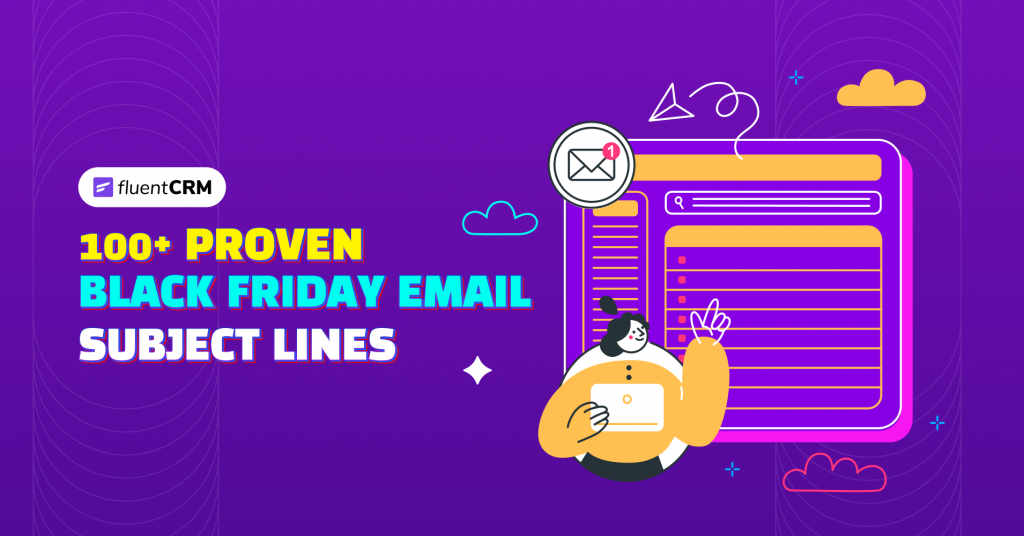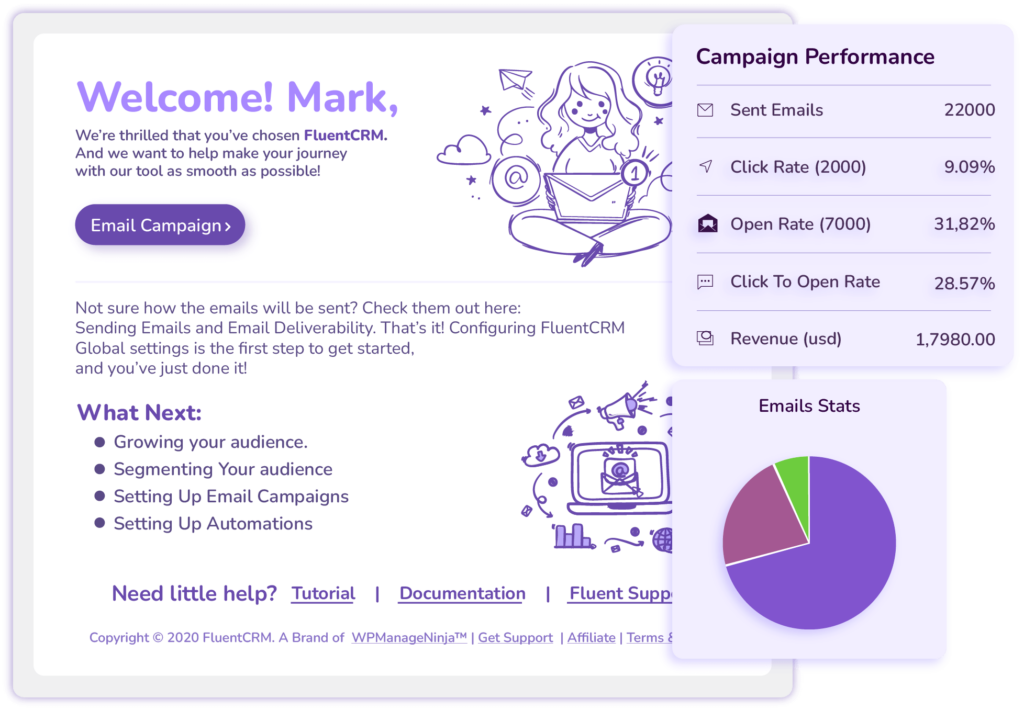
It’s no mystery that the social distancing of 2019-21 has accelerated the demand for online learning, bringing good fortune to online learning platforms. They’ve experienced massive growth over the past few years and will continue to grow to become a whopping 400 Billion dollar market in the US by 2026.
Needless to say; this is high time for creating online courses.
If you’re an instructor looking to host your courses online, you might be undecided between LMS or eLearning Platform.
Sit back and relax. In this article, we’ll compare eLearning platforms with LMS platforms and tell you which is the right way to host your online courses.
LMSs and eLearning Platforms: the Basics
In terms of the primary principle of giving a learning environment to learners, Learning Management Systems (LMS) and eLearning platforms are very similar. That being said, they do differ in certain key elements.
- An LMS allows users to create, design, and host their course content on their own website. For such applications, you’ll have to pay for the tool monthly/annually and that’s it.
- eLearning platforms are web-based applications that enable their users to create online courses and then host courses for selling. They usually charge a fee for each sale you make.
An LMS is much like an eLearning platform since both allow the users to create their content by themselves. Both are generally used to assist instructors and learners in accomplishing the learning process in an organized manner.
Examples of LMSs and eLearning Platforms
One of the most extensively used LMS tools for education is Blackboard (Now Anthology). It’s been running since 1997 and offers a variety of tools for creating, delivering, and managing course content. Blackboard Learn lets you grade assignments, upload files, and provide immediate feedback to apprentices.
On the contrary, Adobe Captivate is a wonderful example of an eLearning platform because it allows you to create online courses from the ground up without having any programming skills. The application helps administrators and managers with all five phases of learning management, including building online courses, presenting them to learners, measuring performance metrics, encouraging learner collaboration, and reporting.
LMS vs. eLearning Platforms: Key Differences
Despite their similarities in basic functioning, LMSs and eLearning platforms have significant differences. Here are the key differences between LMS and eLearning platforms:
Functionality and Flexibility
LMSs are more feature-rich, with support for file sharing, collaboration, data storage, messaging, and other features. On the contrary, eLearning platforms are mainly concentrated on hosting online courses. Basic content creation, storage, and other features are included with these platforms.
Accessibility
Unlike LMSs, which can be hosted or installed on-premises, eLearning platforms are almost always hosted. This means eLearning platforms offer more yieldable access controls and better scalability. LMSs can be usually accessed within an organization’s network whereas you can access eLearning platforms from anywhere just with an internet connection.
Time to Market
LMSs take a bit of time and expertise to set up and link with other software, whereas eLearning platforms can be easily integrated into an existing website or app without taking much time. This is because LMSs have more complicated setup procedures than eLearning platforms, requiring the hiring of technical professionals to integrate them with other systems.
Pricing
LMS tools have a large feature set and support for a wide range of integrations. This makes LMS a very robust option. However, it comes at a high monthly/annual price. In addition, you might have to go through a lot of customization to set up your learning platform correctly.
This makes LMS a very expensive choice for first-timers. But the catch is, you only have to pay for the tool monthly or annually. Once you’re done with that, you don’t need to worry about anything.
Contrariwise, eLearning systems are designed to be less feature-rich, with more flexibility and scalability than LMS. So, eLearning platforms are less expensive than learning management systems. But most eLearning platforms charge you a certain amount every time someone buys your course and this will go on for a lifetime.
Although this looks okay in the short term, it can have a huge impact on your revenue in the long run.
Looking for a Better Alternative?
However, if you choose a WordPress plugin like MemberPress, the scenario is pretty different. It’s a no-code platform that helps you get your online courses up and running in hours if not minutes.
Almost all the functionalities of MemberPress are drag-and-drop, which means there are no complexities involved. From building beautiful course websites to delivering custom certificates, everything is designed for beginners. And since MemberPress was primarily built for creating memberships, you can also create beautiful communities!
And the best part?
All the wide range of features start from just $179/year!
Course Ownership
When you create a course with LMS, you own your course completely. You can modify, bring any update or add a lecture to your course without anyone’s permission. Unless you delete or modify the course yourself, it will remain unchanged.
On the other hand, an eLearning platform doesn’t provide you the kind of freedom that LMS does. Although you can modify some aspects of your course, you actually don’t own them, the platform does. And if your course violates their policy, they can make changes to the course or delete them.
Control Over Course Pricing
If you host your course on your own website, you can control the course all by yourself. Keeping that in mind, it’s apparent that you can determine the price of your course, give a discount on them and so on. Basically, you get complete control over your course pricing.
However, the eLearning platform doesn’t provide you with this advantage. They decide the pricing of your course. So you literally don’t have control over how much your course gets discounted.
Possibility of Student Acquisition
You have to work hard to get the students if you go with LMS. Since it’s a newly launched course nobody will know about it. It’ll require you to do the promotion of your course on your own. You can utilize the power of social media and email marketing to acquire students from there. Undoubtedly, this will need some effort. However, in the long run, this will benefit you.
eLearning platforms are already popular and full of students. The students are always buying one or another course to learn from their instructor. The eLearning platform doesn’t look for students. Apprentices go there on their own seeking to learn something new.
Control Over Course Branding
Since LMS gives you the full authority to course ownership, you can do whatever you want. For example, to do your branding, you’ll have to choose a color scheme, make a logo, thumbnail, a login page, develop custom build banners, maintain communication with your customers, and so on. All these things help you build your brand. You can utilize social media to promote your course. LMS never comes in the way of your personal branding.
There are thousands of courses on eLearning platforms. So chances are, your course can get lost in the crowd. But no matter how much you want to make your courses stand out, nothing goes according to your opinion as eLearning platforms do course branding on their own. You don’t get the authorization to do the branding for your course and you can’t control how they will be marketed.
Email Marketing Integration
LMS gives you full control when it comes to email marketing. It offers smooth integration with email marketing tools. You can generate leads, send them newsletters, update them about your new courses, offer discount coupons, and many more things. For example, renowned WordPress LMS plugins like Learndash, LifterLMS, Tutor LMS, etc., integrate nicely with our own email marketing plugin FluentCRM.
Want to see what you can do? Check out our Learndash email marketing automation tutorial!
On the other side, the authority controls all of the email marketing on eLearning platforms. Instructors don’t get the leads directly. All they get is just a list of their students’ names. If they have to provide any information to their student, they’ll have to do it from the platform’s communication box.
Even the instructors can’t run an email campaign for any other courses that are hosted on other platforms. So, eLearning platforms definitely have some limitations when it comes to email marketing integration.
Monetization Options
Since you’re creating courses for students, you would want to get the most out of your efforts. And to do that, you’d want to monetize your course with affiliate marketing, PPC ads, etc.
LMSs won’t put any restrictions on what you do, or how you do it. You can promote anything you like, put up PPC ads, sell banners, and do anything that helps boost your revenue.
However, if you host your course on eLearning platforms, you have to stay within its guidelines. Most eLearning platforms won’t allow you to add an affiliate link on your course, let alone PPC ads or banners! Thus, the only way to make money is to sell courses. Other than that, you won’t have any other monetization options.
LMS vs eLearning platform: Which One Should You Choose?
An LMS can be used for a variety of purposes, including tracking and managing learners’ progress. On the contrary, eLearning systems are far more user-friendly and appealing in terms of design. You can choose the one that is more compatible with your needs.
If you want a professional platform, LMS is the way to go. If you’re seeking a way to develop and manage content, eLearning is a good option.
Because of its ease of use and visually appealing drag-and-drop interface, eLearning platforms are frequently preferred over LMSs. They also enable users to mix and combine different sorts of content, templates, visuals, audio, video, and tests.
On the other hand, LMSs have many built-in features that eLearning platforms don’t have. For example, an LMS can assist you in tracking learners’ progress and awarding certifications. They’re also good for performance management and evaluation.
LMS’s offer way more control over your course, allowing you to brand and market your course in any way you want. You don’t have to sacrifice anything apart from the large student base.
However, it’s all too easy on an eLearning platform. So we leave the decision up to you!
So which one are you choosing for hosting your online course? LMS or eLearning? Let us know in the comment section!
Also, subscribe to our blog and follow us on Twitter.









Leave a Reply